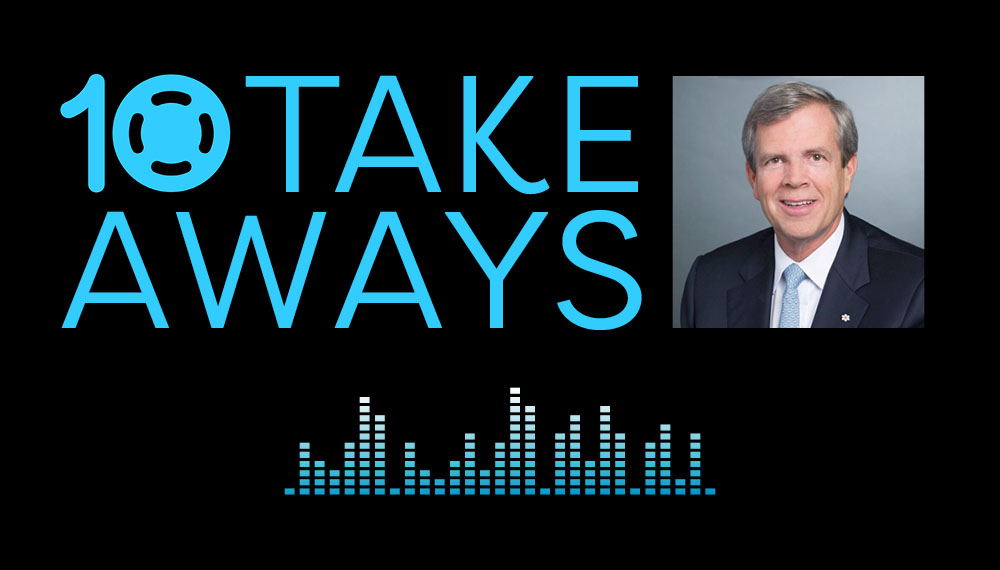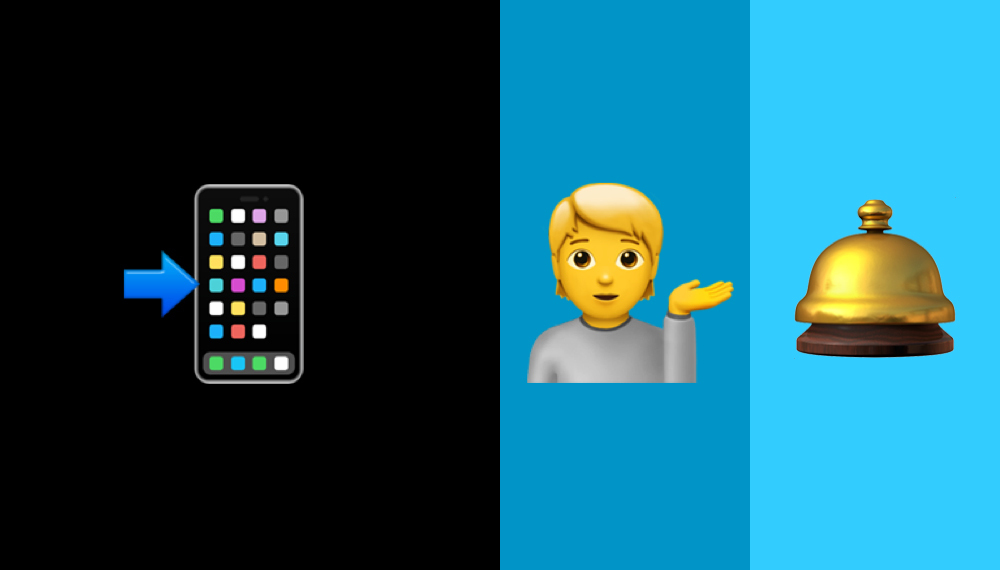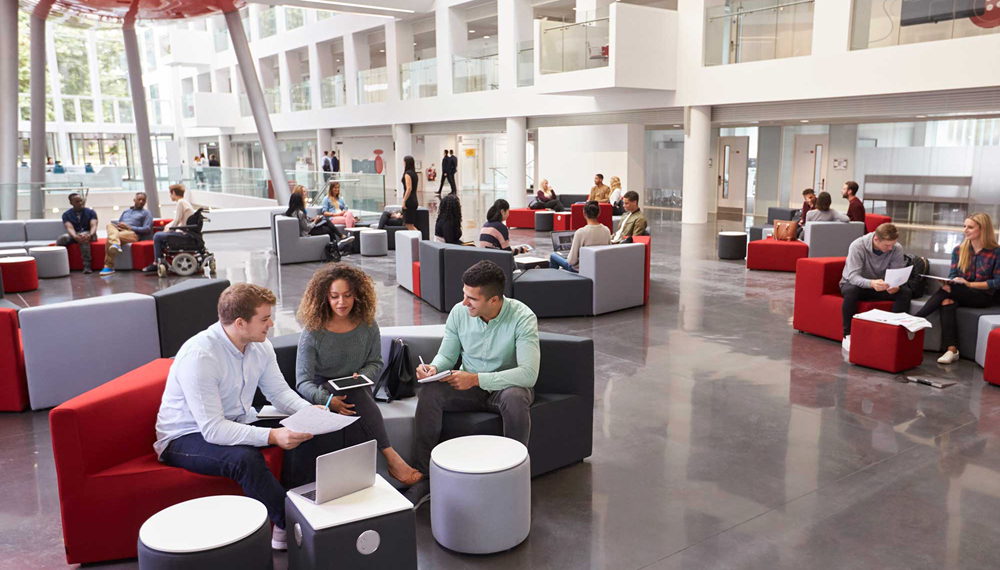
TEN Takeaways from Jon Love, CEO KingSett Capital
ICYMI: HILO’s David Abrams welcomed Jon Love, CEO KingSett Capital to the TEN Podcast to chat about success, communication, and building horsepower during a pandemic. Here are our TEN takeaways:
1. The secret to building a business is building relationships
When asked if there are any unique skills that have contributed to Jon’s success, he explains that “every business has to provide a solution to its customers, and what we do is no different. And understanding what a customer needs, and in our case, there’s different stakeholders, understanding what they need, and delivering a solution to them is sort of the core tenet. And it is fundamentally all about relationships, because relationships enabled me to assemble the capital, assemble the people, and assemble the broader ecosystem around KingSett that makes it operate.”
2. Advice for a young person: focus on the here and now
Jon says that “people are [often] thinking in the future at the expense of executing in the present. And it’s fundamental to get ahead to execute in the present, because I can tell you, the senior people, leaders can all tell those who are contenders and those that are pretenders. And being a contender is someone who’s getting it done in the present, above and beyond the expectations, doing more than just what’s required.”
3. Luck is just an opportunity recognized
Jon didn’t start KingSett 18 years ago thinking he’d be where he is today. He explains that he “approaches life unencumbered with the strategy. So live in the present, execute, get it done, and you know what? Stuff just happens. And be open to pivot, to take advantage, understand opportunities, because there’s no such thing as luck.” He shares a message that might be helpful for all of us and that is “the difference between people who are deemed to be lucky and others, is their ability to recognize an opportunity and seize it.”
4. You can’t schedule spontaneity
Jon and David discuss that while work from home will continue to have a primary place in flex work, the permanent work from home is unimaginable. How do you build a relationship with someone when you have to schedule it? “This is no way to build a business. It’s like we’re holding our breath. And we’re doing the best we can. I’m communicating extensively with everybody. We’ve got webinars, I send out a note several times a week, I do all sorts of things. But at the end of the day, it’s hard to build and create when you’re holding your breath”, Jon explains.
5. Build horsepower to address future opportunities
When asked what he would do with an extra hundred million dollars, Jon shares that he would build horsepower. As the world continues to recover, he says that it’s important to look for opportunities and ensure that he has the capacity, and address those opportunities as he sees them. While it may not be an extra hundred million dollars, how would you spend some extra dollars to help your business through this pandemic?
6. People around us will share insights all the time, if we’re prepared to listen
David asks Jon about who and what has influenced his journey and Jon explains that in moments where you are most stressed or anxious, someone will come up with something golden, and you might walk away and say, “that’s pretty interesting.” These insights can shape how you think, act and respond.
7. Relationships go two ways
David shares a story with Jon about the time he saw him on the subway and how Jon connected and engaged with an individual in such a wonderful way. David says “that approachableness on your behalf was really just interesting to witness. So I suspect along the way, you’ve been doing that for many, many others as well. Jon responds by saying, “if people are kind enough to engage with you, no matter what your age and stage is, you respond in kind.” Another wonderful lesson that people at any stage of their career can learn from.
8. The commute is a good transition of head space, from home to business
Both Jon and David agree that they miss the commute and discuss the benefits of transitioning from homelife to a work mindset. While many people are happy to eliminate the commute from their daily life, work from home means that some are working all of the time without any breaks. It’s important to take holidays, disconnect, and turn work off, however, in this new world, the lack of commute means that some are working longer hours than ever before. We need to find ways to replace the benefits of the daily commute.
9. The story is a little better than people think
Jon shares a few things that his team are working on, including a visit he made to City Center Mall in Regina, Saskatoon to check in with store managers. He explains that “they’re pretty upbeat and everybody is beating their COVID reduced budget. So, the story’s a little bit better than people think, and I think that’s encouraging.”
10. Make the most of every moment that is right in front of you
David asks Jon if there is anything he wishes he had known at the beginning of his career. Jon says, “Work in the present. Focus on executing today’s job. And the breaks will come your way, they did for me.” He concludes by saying “it’s important not to take yourself too seriously, get the job done, be intense enough, and work in the present, and stuff happens, good stuff. Thanks for the great advice Jon!
We would like to thank Jon Love for joining us on the TEN podcast and for sharing his journey from early beginnings at Oxford to now leading the team at KingSett Capital. If you’d like to hear more of Jon’s interview, click here. Stay tuned for more episodes and takeaways from leading professionals and industry experts who all have something to say about experience in the built world, and the impact that technology is having on the largest asset class in the world, commercial real estate. Until then, wishing you all continued success in building community where you work or live.
- July 1, 2020


